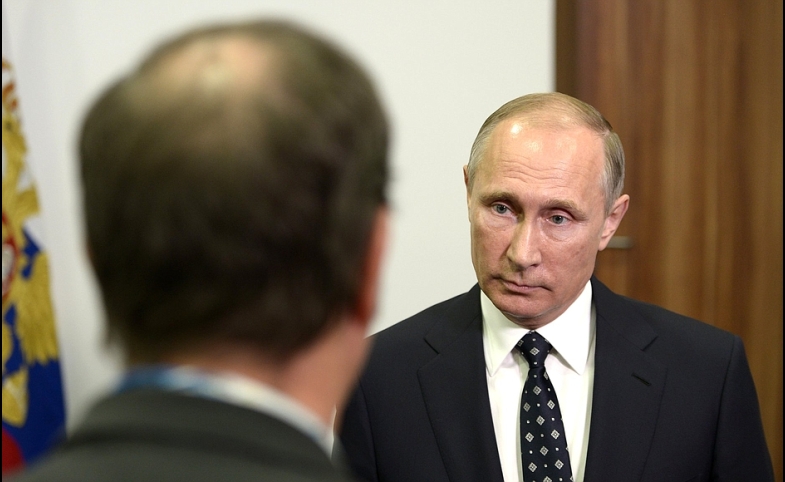Despite the new U.S. President's well-known openness toward the Kremlin, I can think of no relationship where public diplomacy and exchanges are more important or harder to do than the relationship between the U.S. and...
KEEP READINGThe CPD Blog is intended to stimulate dialog among scholars and practitioners from around the world in the public diplomacy sphere. The opinions represented here are the authors' own and do not necessarily reflect CPD's views. For blogger guidelines, click here.

Trump and Russia
If you listen carefully, you can hear the sound of objects crashing to the floor in the fragile china shop that is our country’s foreign diplomacy. We have let the bull that is our President-elect inside, and he’s begun to thrash about.
The latest incident is the phone call with the leader of Taiwan, a break with a tenet of our policy toward China going back more than 30 years. That followed the damaging phone chat with the president of Pakistan that so astounded Islamabad that they publicized its content online.
Before that, cracks in our steady relations with allies in Europe over NATO commitments, a careless tweet regarding populist right-winger Nigel Farage as an ideal Ambassador to the U.S., and a meeting in Trump Tower with the Prime Minister of Japan, attended by Ivanka Trump but without any input from the State Department. Did I mention Mexico?
The U.S. President-elect remains a defender of Vladimir Putin when he should be standing behind efforts to get to the bottom of Russia’s information warfare.
It may seem the wrong moment to mourn the loss of public diplomacy when diplomacy itself is a casualty of the U.S. political transition. But in our search for answers, we have to examine what has happened to public communication, and in that sense, public diplomacy as well.
Let’s start with Russia.
Among the continuing armed conflicts that Obama bequeaths to Trump are two—Syria and Ukraine—that are being fought using mass communication as well as regular weaponry. Russia is a protagonist—aggressor, in fact—in both. Russia’s air attacks on the Syrian city of Aleppo, destroying civilian hospitals, killing thousands and creating an ongoing humanitarian crisis, is only the latest outrage.
To obscure its actions, Russia has been manufacturing false news about these conflicts, while hacking into our own institutions, as CNN's Chief International Correspondent Christiane Amanpour recently pointed out.
“…journalism and democracy are in mortal peril, including by foreign powers like Russia paying to churn out and place false news, and hacking into democratic systems [in the U.S.] and allegedly in upcoming crucial German and French elections too…”
And yet, Russia gets a free pass from Donald Trump. During the campaign, Trump declared multiple times that Putin could be a reliable partner—without citing any evidence for his hopefulness.
Can it be relevant that Paul Manafort, the Kremlin-paid consultant who was Trump’s campaign manager for part of the summer, reportedly still wields influence in Trump’s inner circle?
Trump himself was paid $150,000 in September of last year by a Ukrainian oligarch to address a conference via Skype from Trump Tower, just months after he had declared his candidacy and begun attacking Hillary Clinton for her Goldman Sachs speeches. Watching the Youtube video is instructive: Trump studiously avoids saying anything negative about Russia, instead blaming Ukraine’s crisis on a lack of support from Europe and “weakness” by Obama.
Now, against the backdrop of his attacks on American media, his disturbing moves in foreign relations, and his continuing apparent conflicts of interest, the U.S. President-elect remains a defender of Vladimir Putin when he should be standing behind efforts to get to the bottom of Russia’s information warfare against other countries.
Seven Democratic U.S. senators have asked the Obama administration to declassify the information that led the U.S. intelligence community to conclude that Russia had hacked the U.S. Democratic Party. The head of Public Diplomacy at the State Department, Richard Stengel, laments that Russia’s information warfare is going unchecked. Instead of breaking more crockery in the diplomatic cupboard, our next President should be focused on bringing more transparency and truthfulness to his public communications.
Photo by Kremlin.ru I CC 0
Visit CPD's Online Library
Explore CPD's vast online database featuring the latest books, articles, speeches and information on international organizations dedicated to public diplomacy.
POPULAR ARTICLES
-
March 22
-
February 23
-
February 22
-
April 1
-
April 11
Join the Conversation
Interested in contributing to the CPD Blog? We welcome your posts. Read our guidelines and find out how you can submit blogs and photo essays >.













